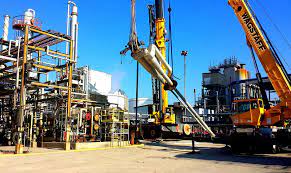Geoscientists play diverse research and educational roles in a variety of sectors, including nonprofit, government, and private corporations. Some geoscience positions focus on lab work while others require more time in the field. Consider whether your interest lies in research or teaching, whether you enjoy traveling, and what your salary expectations are. In this article, we discuss what geoscience is, what education you need to become a geoscientist, the average salary for geoscientists, tips for working as a geoscientist, and several jobs for geoscientists.
Recommended
What is geoscience?

Geoscience is the study of the earth and its physical components. Geoscientists are scientists focused on learning about the earth’s processes, composition, and structure. They study what Earth might have been like in the past, what features it has now, and what might happen in the future.
Geoscientists perform the following duties:
-
Travel to and take samples in the field
-
Design and conduct experiments
-
Analyze samples in a laboratory
-
Create maps and charts
-
Write research reports and articles in industry publications
-
Present their findings to colleagues
-
Make predictions about future physical and geological processes
Many industries and organizations use geoscientists for research and development, including:
-
Oil and gas
-
Mining
-
Renewable energy
-
Environmental engineering
-
Government agencies
-
Nonprofit organizations
What education do you need to be a geoscientist?
Employers typically require geoscientists to have a bachelor’s degree in geoscience or a related field, such as:
-
Geology
-
Environmental science
-
Environmental engineering
The foundational courses for a career in geoscience include:
-
Mineralogy
-
Petrology
-
Structural geology
-
Math
-
Physical science
-
Computer science
Some programs also offer opportunities for fieldwork and onsite research, as well as training on specific software programs used in the industry, such as mapping, plotting, and compositional analysis programs.
Many geoscientists also earn a master’s or doctorate before employment or while working in the field. Advanced degrees are often necessary for higher-level teaching or research positions.
What is the average salary for geoscientists?
The Bureau of Labor Statistics reports that the average salary for geoscientists is $92,040 per year. This figure includes the salaries of geologists, geochemists, geophysicists, oceanographers, petroleum geologists, and seismologists. The BLS also reports a promising outlook for geoscientists, with a predicted job growth rate of 5% between 2019 and 2029, faster than the average rate for all jobs.
Tips for working in geoscience
Here are some tips for beginning and maintaining geoscience careers:
-
Understand the scientific process. Geoscientists should be interested in applying the scientific method to study the earth’s physical elements.
-
Improve your mechanical skills. Geoscientists work with a variety of tools and equipment while out in the field or the lab. You should be comfortable working with various handheld tools, radar and x-ray equipment, and complex microscopes.
-
Be comfortable traveling. Many of your experiments and projects may involve travel and spending the majority of the research period away from home.
-
Enjoy variety. Geoscientists can experience much variety in their job location, what they’re studying, and their duties on any given project.
-
Network with other professionals. Attend workshops and conferences to learn more about the field and network with individuals and corporations. These connections can lead to job opportunities.
-
Contact companies directly. Companies may not advertise open positions, including internships, in traditional mediums. Consider contacting companies that interest you to inquire about available jobs.
-
Learn to communicate effectively. Geoscientists must be able to explain highly scientific information and research to laypeople through verbal and written communication. This takes practice and patience.
-
Be willing to learn. Scientific theories evolve and change rapidly. Geoscientists should be open to new ideas, processes, and discoveries.
I hope you find this article helpful.